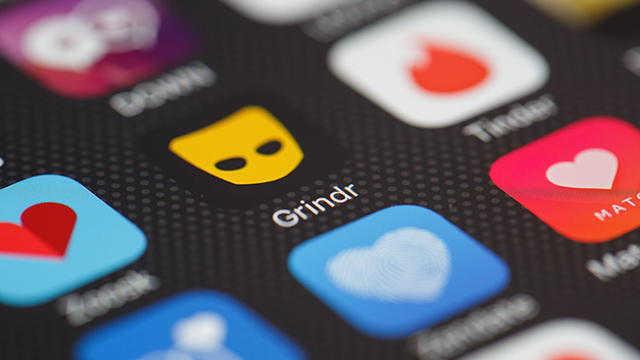Gay dating apps that are healthy for teens
But when it comes to topics like where you live, keep things vague and don't offer up your exact address.
Share your voice
Never meet somewhere private "If you meet someone on a dating app who suggests meeting in person, make sure that you meet up in a public setting," says Bizzoco. Meeting in a place where other people are around makes the first meet up safer, and if things don't work out this person won't know personal information such as your address. Meeting in public also makes for a less awkward exit in the case the two of you don't end up hitting it off.
This app has a separate option for teens, which ensures that you're going to be placed into a group of singles that are the same age as you. The app focuses on building friendships first, which takes the pressure off of communicating with a match for the first time.
Check It Out It Here.

If you're concerned about fake profiles, Hinge is a great app to use to make sure that the matches you're speaking with are authentic. The app taps into your social network to find you a match — so there's no need to worry about whether or not the person you're chatting with is actually who they claim to be and if you are concerned, you can hit up your mutual friend to see if they're the real deal.
Best Dating Sites For Teens - AskMen
Sometimes when it comes to dating apps, less is more — which is the motto that Coffee Meets Bagel operates under. This causes the matches on both sides male and female to be considered more closely, and makes it much less superficial. The app works similar to Tinder in that you set parameters regarding age and location of your ideal match.
Log on using your Facebook credentials, upload a few photos, and you're able to connect with potential matches in your area. Ladies are required to make the first move on this app once you match, but you're free to chat once they do.
Apple approves 'only gay social app for ages 12 and up'
New to the dating app landscape, Taffy aims to create connections based on similarities rather than relying heavily on physical attraction. Taffy makes conversation a prerequisite in the world of connecting with others. With Taffy, users create personal ads with blurry profile pics and catchy headlines. Images slowly reveal through real-time chat. The more you say, the more you see. The result is an engaging experience that puts personality on a level playing field with physical attraction. Another newcomer that's a lot like it sounds — a site that matches singles up based on what activity they'd like to do.
A background check is required in order to join, which keeps users safe and ensures no fake profiles get created.
They select a day, time and location as well as an activity based on what the other member likes to do or is willing to try. It is common for adolescents, regardless of their sexual orientation, to use sexually explicit media such as apps or porn to explore their sexuality. However, young men who have sex with men are far more likely than other groups to be infected with HIV, and the study found that most boys who had had sex with partners they met on the apps didn't always use condoms. In the study, sexually experienced gay and bisexual adolescent boys ages 14 to 17, who were recruited from Facebook and Instagram, completed online survey questions assessing their use of apps to meet partners for dating and sex, as well as their sexual behavior and HIV risk.
- tsnnrr bradley gay escort.
- Apple approves 'only gay social app for ages 12 and up' - CNET.
- The Best (And Safest) Online Dating Sites For Teens.
- top free gay dating site.
- gay bear mature.
- black gay dating sites.
Overall, More than 80 percent of the youth reported using hookup apps such as Grindr - the most-downloaded app worldwide for men who have sex with men - and dating websites because they felt like they had few options for meeting gay, bisexual and queer partners in their neighborhoods.
More than 30 percent of study participants said they used these technologies to prevent other non-LGBTQ people from learning about their sexual orientation. Thirty-four percent of participants said they used the apps to meet a new gay or bisexual friend. The study highlights just how little parents, educators and health care providers know about how teens spend their time on apps and online technology that is constantly changing. Mustanski was senior author.